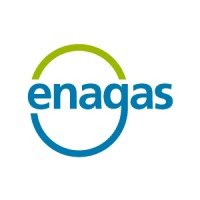Spain welcomes Germany’s entry into the H2Med project

The Government of Spain has welcomed the agreement for Germany to join the H2Med, together with France and Portugal.
This is a definitive achievement in the necessarily European vocation with which Spain has been dimensioning and promoting this hydro-product since the start of the project, and to which the presence of the president of the European Commission, Ursula Von der Leyen, at the presentation of H2Med at the last Alicante Summit, on 9 December 2022, is testament.
Furthermore, the incorporation of Germany underlines two commitments that Spain has always made with the implementation of this green energy corridor.
First, the strengthening of the EU’s energy security and energy autonomy in a context where it is essential for Europeans to show solidarity to reduce energy dependence.
Second, H2Med reiterates Europe’s ambition for climate neutrality and fulfils Spain’s desire to “be at the forefront of the race for energy transition, leading the development of renewable energies, with a vocation to be a benchmark in hydrogen”, in the words of the president, Pedro Sánchez.
The reinforcement of this pan-European dimension of H2Med places Spain at the forefront of the modernising transformation and, for the first time in history, in a position to become a leading green energy hub from the Iberian Peninsula to central and northern Europe.
For the Vice-President of the Government and Minister for Ecological Transition and Demographic Challenge, Teresa Ribera, “the use of renewable hydrogen can provide important solutions, but also innovation, job creation and an industrial value chain in an economy like Spain’s, in southern Europe, where there is much to contribute” to the rest of the EU.
Today’s agreement comes after negotiations between the governments of Spain, Germany, France and Portugal, facilitated by their profoundly pro-European vision and by the strong political, social and progressive harmony that unites them.
Already on 15 December, when Enagás and other operators in France and Portugal promoting H2Med requested the European Commission that this green hydrogen corridor, key to the REPowerEU objectives, be considered a Project of Community Interest -financed up to 50% with European funds within the framework of REpowerEU- operators from Germany produced a joint letter expressing their strong “support” for the project and their desire to make H2Med the backbone of renewable hydrogen supply for most of Europe.
H2Med will be operational in 2030 and is expected to be capable of transporting 2 million tonnes of green hydrogen per year from Spain, representing 10% of the total EU consumption. By 2050, it is estimated that 20% of all energy in Europe will be renewable hydrogen.
